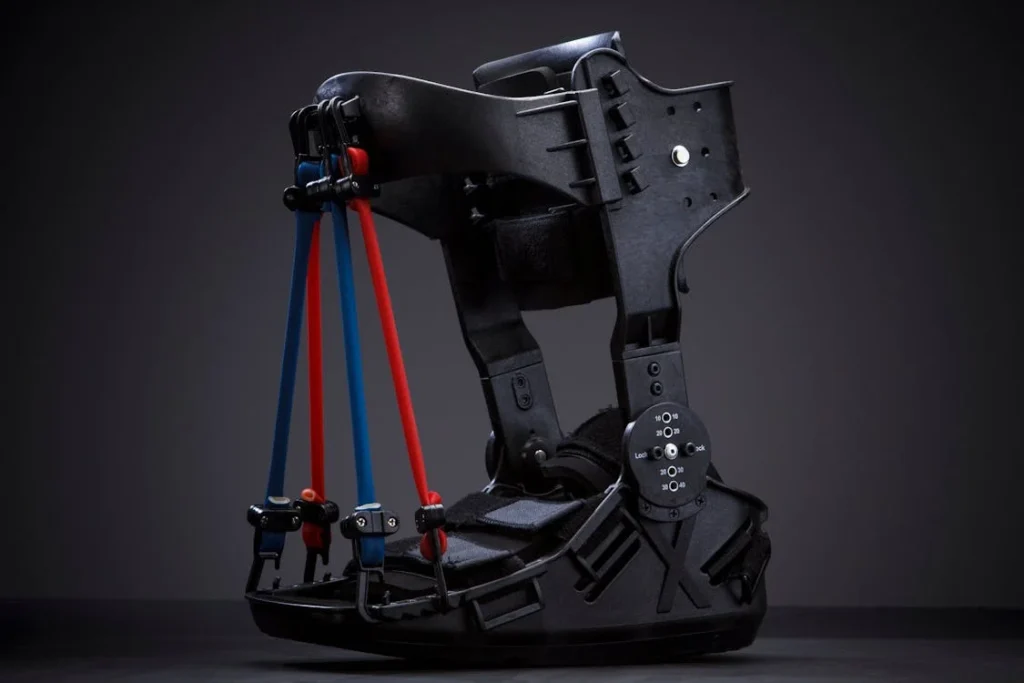In India, countless individuals face mobility challenges due to accidents, medical conditions, or congenital disabilities. Prosthetic limbs and assistive devices offer them a chance at a normal life, but the cost can be overwhelming for many families. Thankfully, the Prime Minister’s National Relief Fund (PMNRF) is one of the key financial aid options available for those in need of prosthetic assistance.
This fund has helped many people regain their mobility, independence, and dignity. However, not everyone is aware of how to apply, who is eligible, and what kind of assistance is available. Many struggle to navigate the process, unsure of where to start.

What is the PM National Relief Fund (PMNRF)?
The Prime Minister’s National Relief Fund (PMNRF) was originally set up in 1948 to assist people affected by natural disasters, riots, and other emergencies.
Over time, the fund expanded its support to cover medical treatments for serious illnesses and disabilities, including financial aid for prosthetic limbs and assistive devices.
The fund is directly managed by the Prime Minister’s Office (PMO) and is based on voluntary donations from individuals and organizations. This means there is no fixed government budget for the fund; instead, it depends on contributions from the public.
While the PMNRF covers a variety of medical treatments, one of its most significant roles is helping those who need prosthetic limbs but cannot afford them.
Many individuals who have lost a limb due to accidents, diabetes-related complications, or other medical conditions have successfully received financial aid through this fund.
How Does the PMNRF Help with Prosthetic Assistance?
The fund provides financial assistance for prosthetic limbs, orthotic devices, and mobility aids to those who qualify. The assistance is usually given in the form of a direct payment to the hospital or medical institution providing the treatment.
For a person who has lost a limb, getting a prosthetic device is not just about mobility—it’s about regaining independence and confidence.
A prosthetic limb can allow a person to walk, work, and take part in everyday activities. However, high-quality prosthetics can be expensive, making them out of reach for many. This is where the PMNRF plays a critical role.
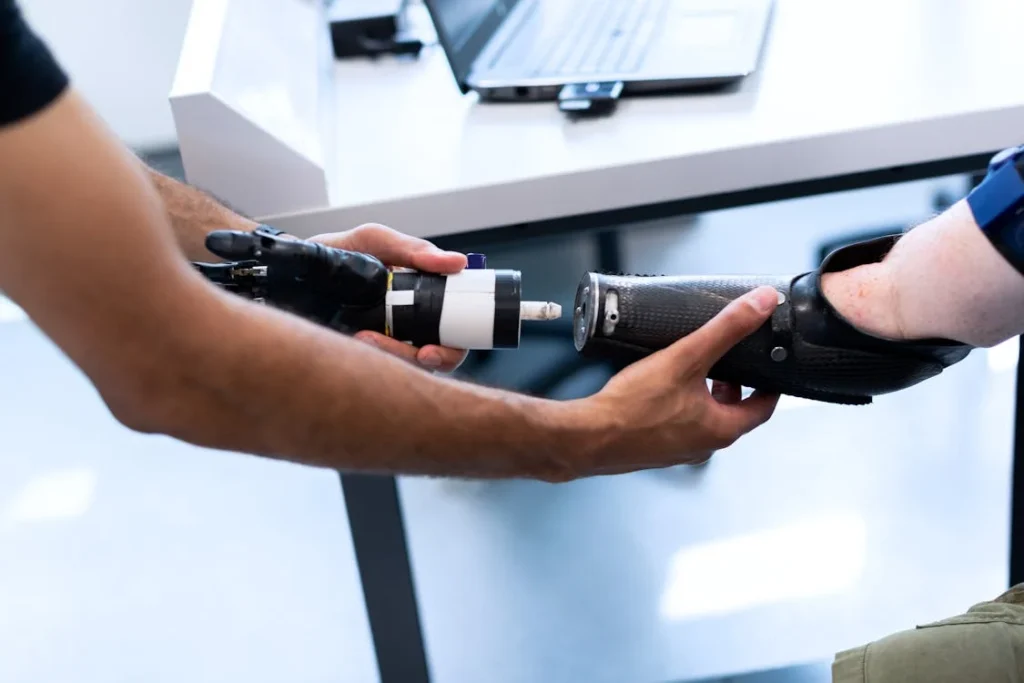
How Does the PMNRF Help with Prosthetic Assistance?
The Prime Minister’s National Relief Fund (PMNRF) plays a crucial role in ensuring that individuals who need prosthetic limbs or assistive devices receive the financial support they require.
For someone who has lost a limb due to an accident, disease, or a congenital condition, mobility is often the biggest challenge. A high-quality prosthetic limb can help them regain independence, confidence, and the ability to participate in daily life.
However, the cost of these advanced prosthetics can be extremely high, making them inaccessible for many people. This is where the PMNRF steps in to provide much-needed assistance.
Who Can Apply for Prosthetic Assistance?
The PMNRF is intended for individuals facing financial difficulties and who do not have the means to afford expensive medical treatments. It is not just for those living below the poverty line but also for middle-class families struggling with high medical costs.
The fund primarily assists individuals who have suffered the loss of a limb due to accidents, diabetes-related amputations, infections, or congenital disabilities.
Many of these cases involve people who were once the breadwinners of their families but lost their ability to work due to their disability.
Children born with limb deformities or who require prosthetic support to lead a normal life are also eligible. Elderly individuals who need mobility aids such as artificial limbs, orthopedic braces, or walking supports can also apply.
The key requirement is demonstrating financial need and showing that the cost of prosthetic treatment is beyond their means.
What Type of Prosthetic Assistance is Covered?
The PMNRF provides financial aid for different types of prosthetic limbs and mobility devices based on the patient’s condition and requirements.
Basic prosthetic limbs, which allow individuals to walk and perform daily tasks, are commonly covered. Advanced prosthetic limbs, including bionic and sensor-based limbs that offer greater functionality, may also be considered in cases where they are medically necessary.
In addition to artificial limbs, the fund may cover expenses related to orthopedic braces, crutches, and wheelchairs for individuals who require mobility assistance.
In some cases, financial aid is provided for rehabilitation and physiotherapy services, which are crucial for prosthetic users to adapt to their new limbs.
How is the Financial Assistance Provided?
The financial aid given by the PMNRF is usually in the form of direct payment to the hospital, prosthetic manufacturer, or medical institution providing the treatment.
This means that once the application is approved, the patient does not receive money directly. Instead, the government ensures that the prosthetic limb is provided by an approved supplier or medical facility without the patient having to bear the cost upfront.
The amount of financial aid provided varies based on the type of prosthetic limb required and the applicant’s financial situation. Some individuals receive full financial support, while others may get partial assistance.
The decision is made on a case-by-case basis, taking into account the patient’s medical condition, income level, and the overall availability of funds.
Why is the PMNRF Crucial for Prosthetic Users?
For someone who has lost a limb, getting a prosthetic device is about more than just regaining movement. It is about restoring dignity, confidence, and the ability to lead an independent life.
Many people who require prosthetic limbs were previously active members of the workforce but found themselves unable to work after losing a limb. Without financial aid, they would have little hope of regaining their independence.
Children who need prosthetics to walk and play like other kids can have their future transformed with the right assistance. Elderly individuals who struggle with mobility can regain their freedom with the help of an artificial limb or an orthopedic aid.
The PMNRF acts as a lifeline, ensuring that financial difficulties do not stop people from accessing essential medical support.
Applying for financial aid can seem overwhelming, but understanding the process can make it easier. In the next section, we will go step by step through the application process, eligibility requirements, and tips to improve the chances of approval.
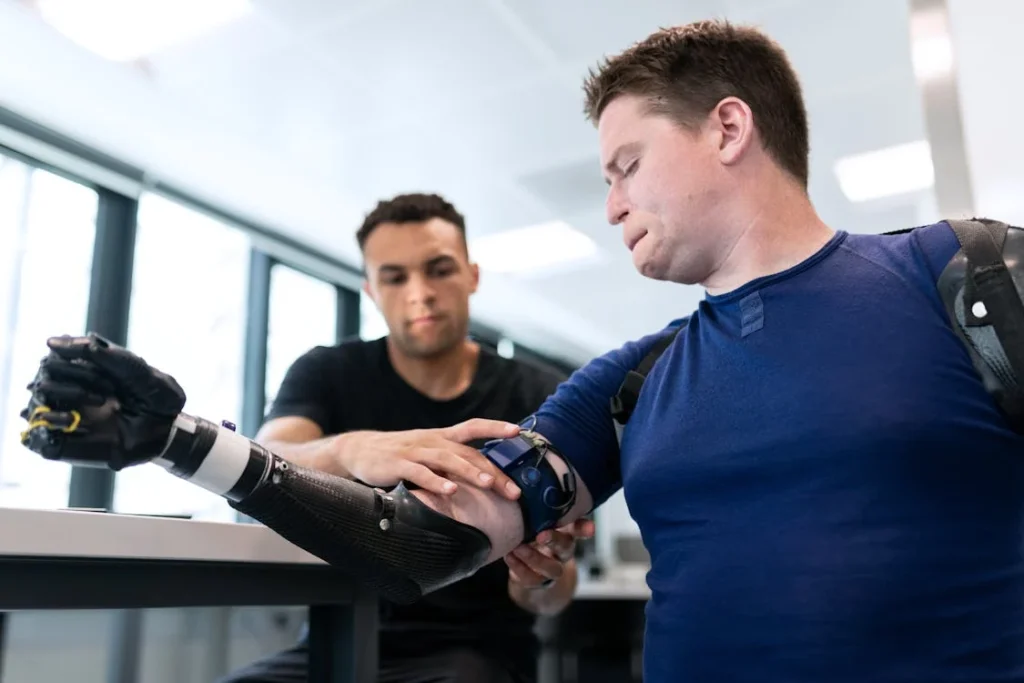
How to Apply for Prosthetic Assistance Through the PMNRF
The process of applying for financial aid through the PM National Relief Fund (PMNRF) may seem complex at first, but with the right guidance, it becomes much easier to navigate.
Understanding the required documents, application channels, and approval process can significantly improve your chances of receiving assistance.
Step 1: Understanding the Eligibility Criteria
Before starting the application process, it is important to confirm that you meet the eligibility requirements. The PMNRF provides financial aid to individuals who require prosthetic limbs and other mobility aids but lack the financial resources to afford them.
While there is no strict income cutoff, priority is given to those from economically weaker sections or individuals facing significant financial hardship due to medical expenses.
The applicant must provide medical proof that a prosthetic limb is necessary. This is usually in the form of a doctor’s recommendation from a government or recognized private hospital. The doctor must specify why the prosthetic limb is needed and what type of device is required.
Additionally, applicants must demonstrate their financial need. Documents such as income certificates, proof of employment status, and any existing medical bills may be required to establish that the applicant cannot afford the cost of the prosthetic limb on their own.
Step 2: Collecting the Required Documents
A successful application requires proper documentation. Missing or incorrect documents can lead to delays or even rejection. The following documents are typically needed:
- Medical Certificate and Prescription – A letter from a government or registered private hospital confirming the need for a prosthetic limb. This must include the type of prosthetic limb required and the estimated cost.
- Income Proof – Documents such as a BPL (Below Poverty Line) certificate, income tax return, or salary slip to prove financial hardship.
- Identity and Address Proof – Aadhaar card, voter ID, or ration card to verify identity and residence.
- Hospital Estimate – A formal cost estimate from a hospital, prosthetic manufacturer, or rehabilitation center where the prosthetic limb will be provided. This must include details of the prosthetic device and the cost breakdown.
- Application Letter – A formal request letter addressed to the Prime Minister, explaining the need for financial aid, the applicant’s financial situation, and how the prosthetic limb will improve their quality of life.
Having all these documents ready before applying can prevent unnecessary delays and improve the chances of getting approved.
Step 3: Submitting the Application
Once all the documents are collected, the application can be submitted through one of the following channels:
- Direct Submission to the Prime Minister’s Office (PMO) – The application, along with all required documents, can be sent by post to the PMO in New Delhi.
- Online Submission through the PMNRF Website – Some cases allow applications to be submitted online via the official website of the Prime Minister’s National Relief Fund. Applicants can upload scanned copies of their documents and track the status of their request.
- Hospital Assistance – If the prosthetic limb is being obtained from a government hospital or a recognized rehabilitation center, the hospital may assist in submitting the application directly to the PMNRF.
- Local Government Officials – Some applications are submitted through the District Collector’s Office, Members of Parliament, or state government officials who forward the request to the PMNRF for consideration.
Step 4: Waiting for Approval
The approval process can take several weeks to months, depending on the number of applications received and the urgency of the case. After submission, the application is reviewed by officials who assess the medical necessity, financial condition, and availability of funds.
Once approved, the financial aid is not given directly to the applicant. Instead, the funds are transferred to the hospital, rehabilitation center, or prosthetic manufacturer providing the treatment.
The applicant will be notified once the assistance has been sanctioned, and arrangements will be made for the prosthetic limb to be fitted.
Step 5: Receiving the Prosthetic Limb
After approval, the applicant can visit the hospital or rehabilitation center to receive their prosthetic limb. In some cases, fittings and adjustments may be required to ensure a perfect fit.
The hospital will guide the patient on how to use and maintain the prosthetic limb for long-term benefit.
Rehabilitation therapy may also be offered to help the individual adjust to their new prosthetic device. This can include physiotherapy sessions, training on walking with the new limb, and learning how to perform daily activities efficiently.
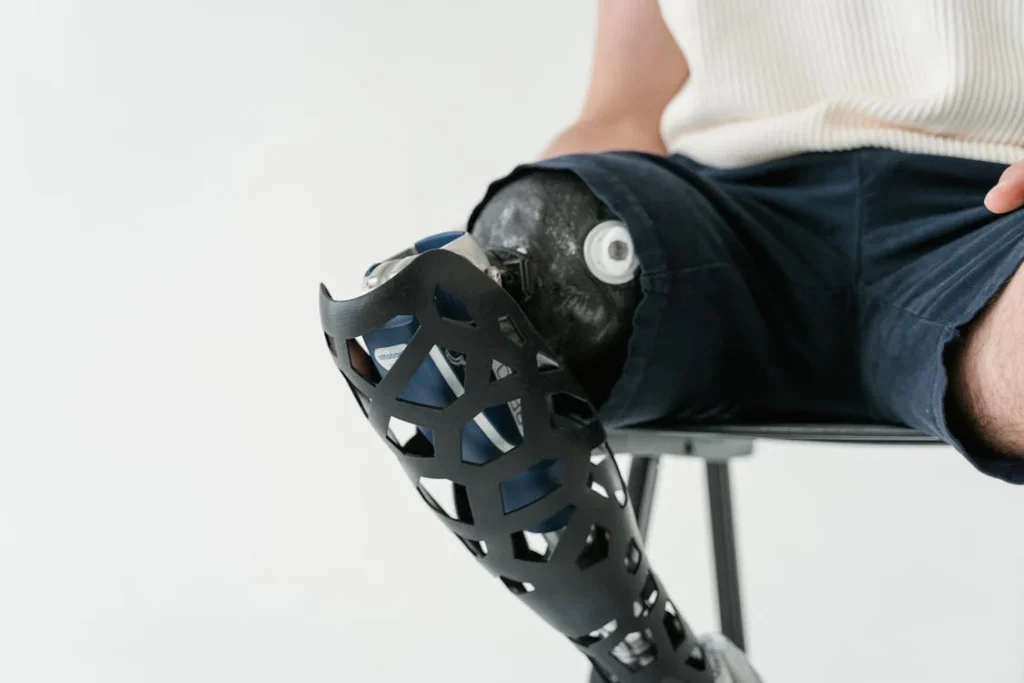
Common Challenges and How to Overcome Them
Applying for financial assistance from the PM National Relief Fund (PMNRF) can sometimes be a challenging process, especially for those unfamiliar with government procedures.
While the fund aims to help as many people as possible, not all applications are approved. Many applicants face delays or rejections due to documentation issues, lack of awareness, or procedural errors.
Understanding these challenges and knowing how to address them can significantly increase the chances of approval.
Challenge 1: Incomplete Documentation
One of the most common reasons for delays or rejections is incomplete or incorrect documentation. Many applicants fail to provide a proper medical certificate, income proof, or hospital estimate, leading to unnecessary delays.
Missing documents can result in the application being put on hold or even rejected outright.
To overcome this, applicants must ensure that all required documents are properly prepared and verified before submission. The medical certificate should be issued by a recognized government hospital or registered private healthcare facility.
The income proof should be clear and official, such as a BPL certificate, salary slip, or income tax return. Additionally, the hospital estimate must include a detailed breakdown of costs, ensuring that the application is processed smoothly.
Challenge 2: Lack of Awareness About the Application Process
Many people who need prosthetic assistance are unaware that the PMNRF provides financial aid. Even those who have heard of the fund may not know how to apply or where to start. This lack of awareness prevents many deserving individuals from receiving assistance.
To address this issue, it is essential to seek guidance from government hospitals, local healthcare centers, or non-profit organizations that assist individuals with disabilities.
Many rehabilitation centers and social welfare offices provide free guidance on how to apply for government aid. Additionally, the official PMNRF website contains important information about the application process, eligibility criteria, and required documents.
Challenge 3: Difficulty in Reaching the Right Authorities
Some applicants struggle with where to submit their applications. While applications can be sent directly to the Prime Minister’s Office (PMO), many people prefer to route their applications through local government offices or hospitals.
However, delays can occur when applications are not forwarded to the appropriate authorities on time.
To avoid such delays, it is advisable to submit applications through multiple channels. If applying via a hospital, ensure that the administration is actively forwarding the application.
Alternatively, applicants can directly send their applications to the PMO by post or through the online submission portal, ensuring that their request reaches the right officials without unnecessary delays.
Challenge 4: Lengthy Approval Process
Since the PMNRF receives thousands of applications, approvals can sometimes take several weeks or even months. Some applicants become discouraged by the wait time and assume that their application has been rejected, even when it is still under review.
To stay informed, applicants should regularly check the status of their application by contacting the PMO or the hospital assisting with the process.
Hospitals that regularly work with government funds can sometimes provide updates on the application status. Additionally, keeping copies of all submitted documents ensures that, if any clarification is needed, the applicant can provide the necessary information promptly.
Challenge 5: Uncertainty Over Approval
Even after submitting all documents correctly, there is no guarantee that an application will be approved.
Since the PMNRF relies on public donations and funds are limited, not all requests can be granted. In some cases, applicants may receive partial financial aid instead of full coverage.
If an application is rejected, or only partial funding is provided, there are still other options available. Organizations such as the Artificial Limbs Manufacturing Corporation of India (ALIMCO) and various state government relief funds also provide prosthetic assistance.
Some non-profit organizations and private charities help individuals who do not qualify for government assistance. Exploring these alternatives can ensure that individuals still receive the support they need.
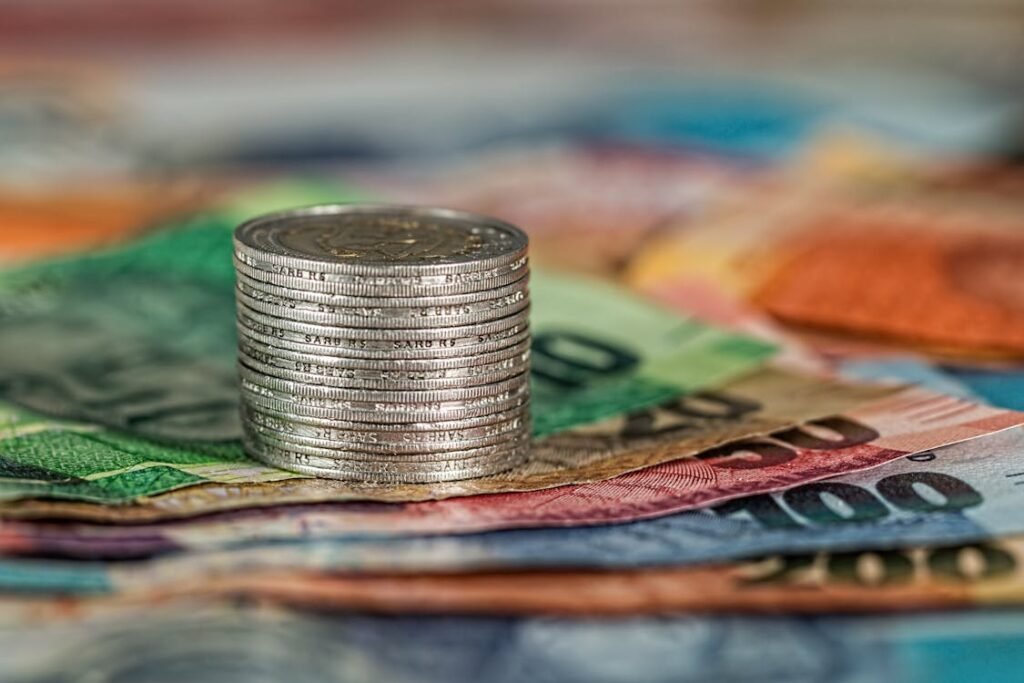
Alternative Financial Aid Options for Prosthetic Assistance
While the PMNRF is one of the most well-known sources of financial assistance, it is not the only one. Several government and non-government organizations provide aid for individuals in need of prosthetic limbs.
Artificial Limbs Manufacturing Corporation of India (ALIMCO)
ALIMCO is a government-owned organization that manufactures and distributes prosthetic limbs, orthopedic appliances, and mobility aids for persons with disabilities.
It runs several schemes in collaboration with the Ministry of Social Justice and Empowerment to provide free or subsidized prosthetic devices.
Those who do not receive assistance from the PMNRF may be eligible for support through ALIMCO.
The organization often works with local rehabilitation centers and hospitals to identify deserving individuals and provide them with high-quality prosthetic limbs at no cost or minimal cost.
State Government Relief Funds
Many state governments in India operate their own Chief Minister’s Relief Fund (CMRF) to provide medical assistance, including prosthetic limbs.
These funds work similarly to the PMNRF but are managed at the state level. Applicants who face difficulties in receiving assistance from the central government can explore funding options available within their own state.
Each state has different guidelines for financial assistance. Some states offer full subsidies, while others provide partial financial aid based on income level and medical necessity.
Information about state-specific relief funds can usually be obtained from district collector offices, local hospitals, or the state government’s official website.
Non-Profit Organizations and Charitable Trusts
Several NGOs and charitable trusts in India are dedicated to helping individuals who need prosthetic limbs but cannot afford them.
Organizations such as Jaipur Foot (Bhagwan Mahaveer Viklang Sahayata Samiti – BMVSS) provide free prosthetic limbs to thousands of people every year.
Some international charities also fund prosthetic aid programs in India, partnering with local hospitals and manufacturers to provide advanced prosthetic solutions at little or no cost.
These organizations often conduct free prosthetic camps, where individuals can receive custom-fitted prosthetic limbs in a single day.
Corporate Social Responsibility (CSR) Initiatives
Many private companies in India contribute to healthcare and disability assistance through their Corporate Social Responsibility (CSR) programs. Some companies partner with hospitals and prosthetic manufacturers to sponsor prosthetic limbs for individuals in need.
Applicants can check with local corporations, industrial groups, and CSR foundations to see if they have ongoing projects related to prosthetic assistance.
Some companies run direct grant programs, while others support hospitals and rehabilitation centers that provide free prosthetic services.
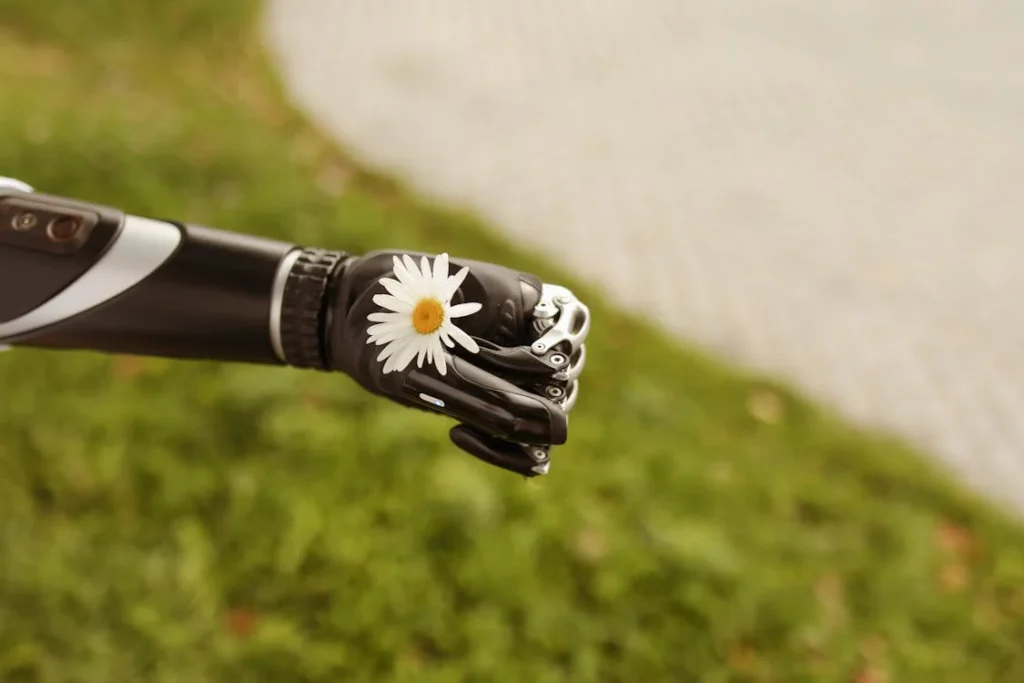
Conclusion
The PM National Relief Fund (PMNRF) serves as a lifeline for individuals in need of prosthetic assistance. By providing financial aid to those who cannot afford prosthetic limbs, the fund helps people regain mobility, confidence, and independence. However, the application process can be challenging, and approvals are not guaranteed.
To improve the chances of receiving assistance, applicants must ensure that all required documents are in order, submit their applications through the right channels, and follow up on the status of their requests. Even if an application is not approved, there are several alternative options available, including state government relief funds, NGOs, and CSR initiatives.
For individuals who have lost a limb, financial barriers should not prevent them from living a full and independent life. By exploring all available funding sources, they can find the support they need to access high-quality prosthetic solutions and move forward with confidence.



